Project activities
The project has three basic stages. The first is archival historical research, thanks to which we are discovering the historical and political context; we document the history of institutions and societies connected with the confiscated and imported books. We find out the provenance of these books. The second stage includes library work – sorting books, cataloguing them, publishing in the database, digitizing and placing books in storerooms. The third stage combines all activities relating to the presentation of cultural heritage – the publishing of professional and popular scientific texts, the organizing of final seminars, and the realization of the exhibition in Clementinum and the virtual exhibition.
In the archives, we search for information on the provenance of the confiscated material
One of the objectives of this project is to document the provenance of the rediscovered books. This would not be possible without thorough archival research, which is currently ongoing mainly in two Czech archives – the National Library Archive (the collections of the National and the University Library) and the National Archives of the Czech Republic (mostly the collections of the National Heritage Institute).
It is important that the research take into account the period context and the provenance of the books we examine, as here we are dealing with one of the fundamental issues of 20th century Czechoslovak history – how the country has dealt with World War II. Against the background of “big history”, the fate of several thousand books, whether of domestic or foreign origin, seems to be of marginal significance. Yet it may turn out these plundered books amount to several million volumes, which is not a negligible number in the general history of books.
At the beginning of this search, the collection of archival documents seemed like looking for a needle in a haystack. During the research, dozens of cartons and boxes of archive material from various Czech and foreign archives will need to be studied, together with the findings of similar international research.
Other sources
Our research into the history of rediscovered books was inspired by the research of the American historian, Patricia Kennedy Grimsted, who for many years focused her research on the issue of dispossessed documents taken from Germany to the east, and on Jewish property confiscated during World War II.
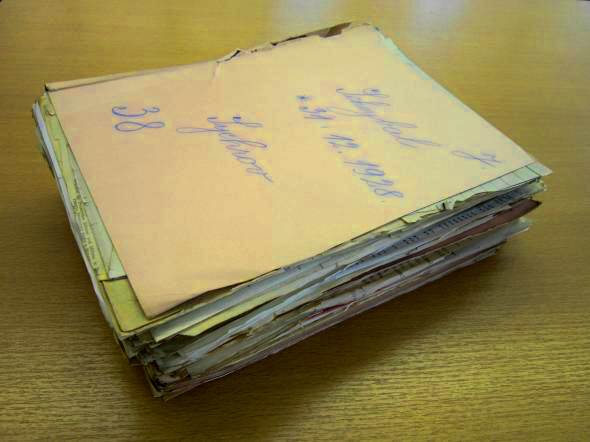
All four scheduled workshops were held
Within the project, four workshops will be organized for the project work teams, enabling the personal contact of staff of the principal project implementer (National Library) and the representatives of the partner institution (Stifftelsen Arkivet). In these workshops, the teams will deal with matters concerning the process of implementing the project objectives. The staff from both countries will exchange experiences and inform each other of the performance of the individual tasks leading to the achievement of the desired objectives.
For 2015, the workshop dates are scheduled so that the staff will be able to keep each other informed about the progress of the ongoing project, in particular the preparations relating to achieving the planned results and project outputs. Two workshops will take place in Prague in the Czech Republic and two will be organized by the Norwegian partner.
First workshop
The first project team workshop took place on 9-10 February 2015 in the building of the National Library’s central depository in Prague - Hostivař. During the first workshop, the staff of both institutions (the National Library and Stiftelsen Arkivet) met for the first time. On the first day, the project commitments together with the objectives and outputs to be achieved were introduced. Competencies and responsibilities for the individual results were divided. On the second day, technical details of funding were discussed, in order to ensure the correct accounting of the partner's costs, along with the vision for the virtual exhibition and website.

Presentation from the first workshop
Second workshop
The second workshop of the international team took place on 19-21 May 2015 in Kristiansand where our partner organisation Stiftelsen Arkivet resides. In the workshop we informed each other of the situation regarding the performance of the individual tasks set in the workshop held in Prague in February and of the progress in the project leading to the continuous achievement of the project objectives.
The main item of the workshop agenda was the virtual exhibition, which is an important project output. First, we discussed what impression the virtual exhibition should make on the user, what effect it should have, and what its purpose is. Themes were agreed for which we are now trying to find particular examples and stories. Further, the present publicity for the project, together with proposals for promotional items, were debated in the workshop.
A no less important part of the workshop was a discussion on economic and administrative issues, focused especially on the necessary particulars of accounting documents. Our historian presented to other colleagues the progress of his research, with a plan for its continuation. Using the chart Journeys of a book in the project, we were able to introduce our library work, which forms the backbone of the project, to our colleagues from the partner organisation.
The first day of the workshop was completed with a fascinating tour of the permanent exhibition within the premises of Stiftelsen Arkivet, which resides in a former Gestapo building. The emotionally powerful exhibition made a huge impression on us.
At the end of the workshop further individual tasks were set and scheduled, to be fulfilled by the following workshop to be held in early November.
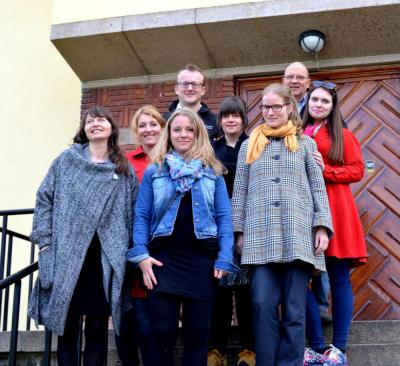
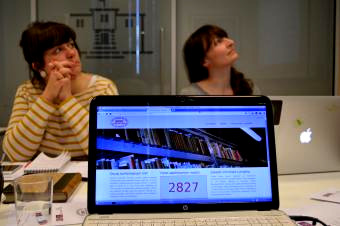
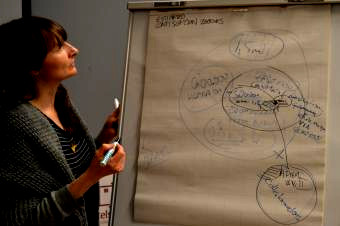
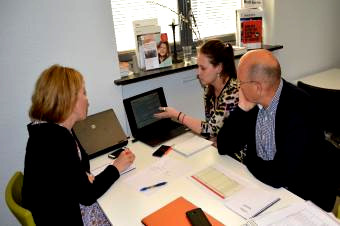
Presentation from the second workshop
Third workshop - November 2015
The third workshop was held on 2 and 3 November 2015 in Kristiansand, Norway. This workshop is devoted to project's activities and the reigning project, news of research and economic issues. The main topic was the preparation of the virtual exhibition, on which we are working hard the last few months. Beta version of this exhibition was presented by its author Idunn Sem. We were brainstorming about the content of the exhibition a lot. The member of Stiftelsen Arkivet Mirjam Kristensen presented the text part of the exhibition. Several employees of the National Library and Stiftelsen Arkivet, as well as some interested individuals outside of these institutions are co-working on the content of the virtual exhibition.
At the end of the meeting we talked about the ongoing final seminars which will be realized in March next year and we set out the goals to be achieved until the next meeting in December.




Presentation from the third workshop
The fourth and final workshop - December 2015
In December 7 to 8 was the last of four workshops of the project in Prague with our Norwegian colleagues from the Stiftelsen Arkivet. At the beginning of the workshop was a traditional summary of the results and revison of project's goals and process of an implementation, which was also attended by Ing. Lenka Šlitrová from the Czech Ministry of Finance. Then we revised the current version of virtual exhibition. The same day we present to our colleagues the process of cataloging books. Than we visited the warehouse in Neratovice, where we shot the video to a virtual exhibition and central warehouse in Hostivař, where is already part of processed books stored. The second day our historian Marcela Strouhalová presented the progress and status of the historical research. Then we looked at the specific content and shedule of the final seminars and titles of posts that will be presented there. Finally, we made a final decision of the purchase of promotional items and discuss the promotional activities. At the end of the workshop Norwegian colleague Anette Storeide introduced us to her ongoing research which will be presented at both final seminars.
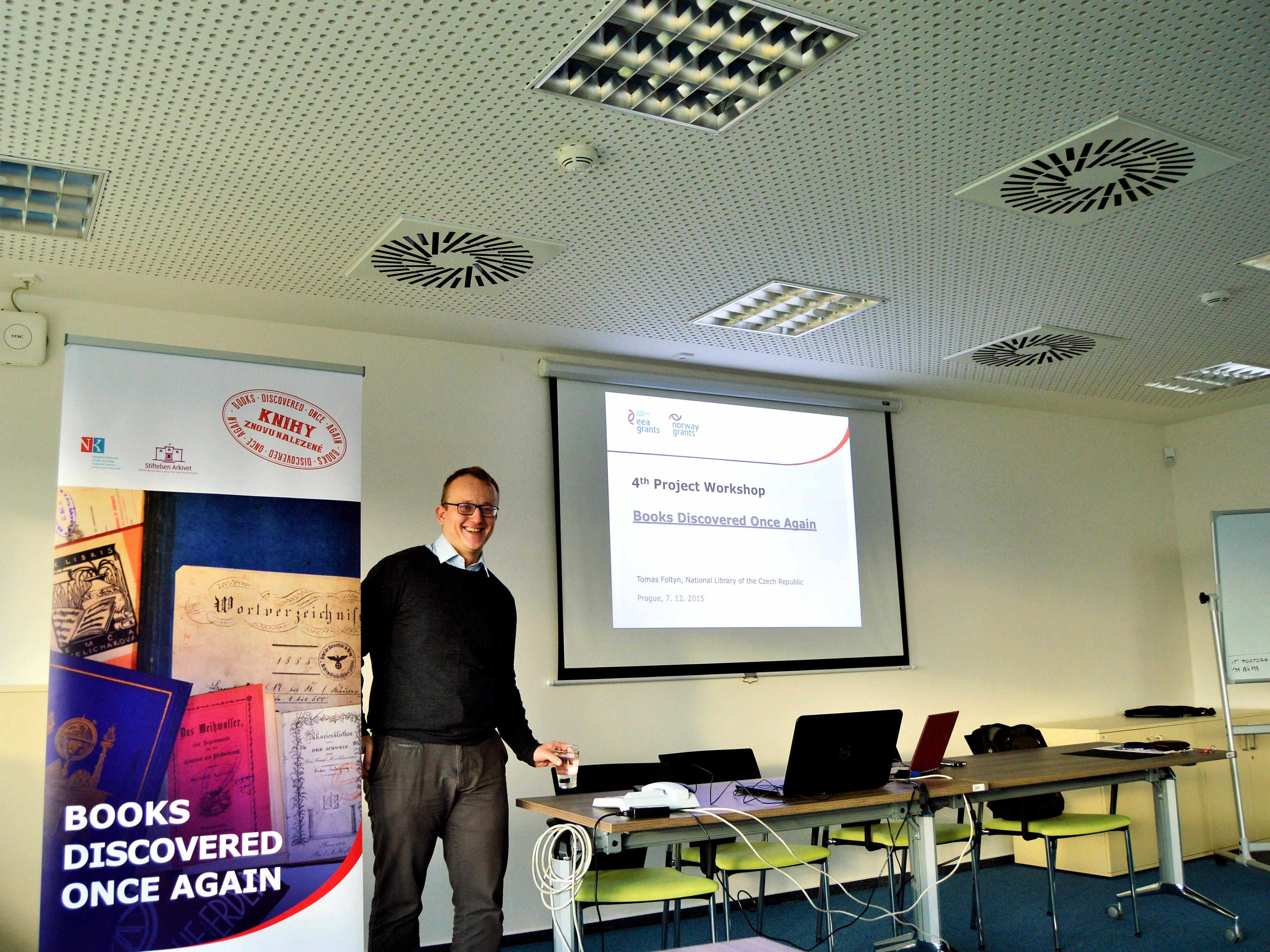
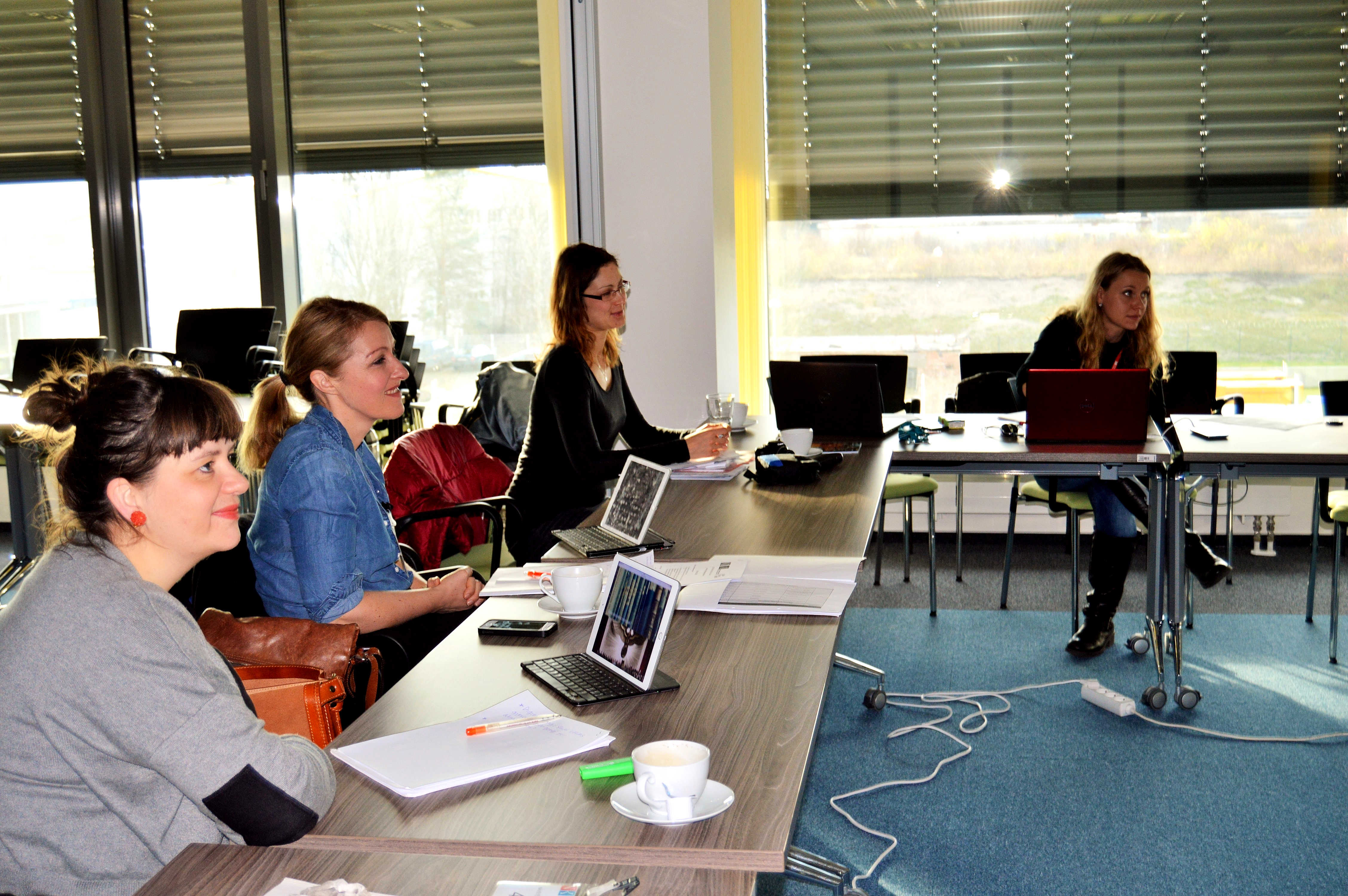
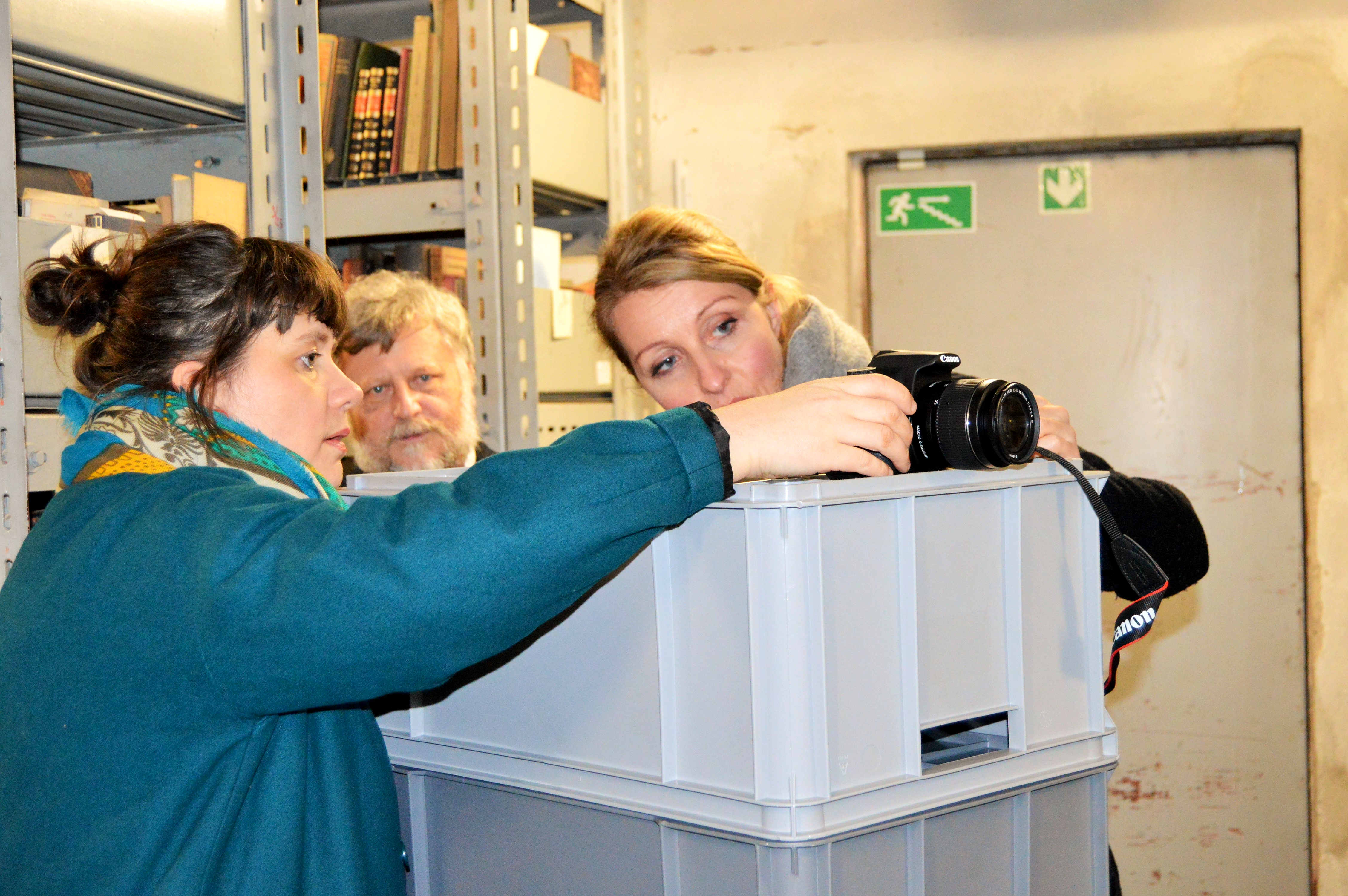
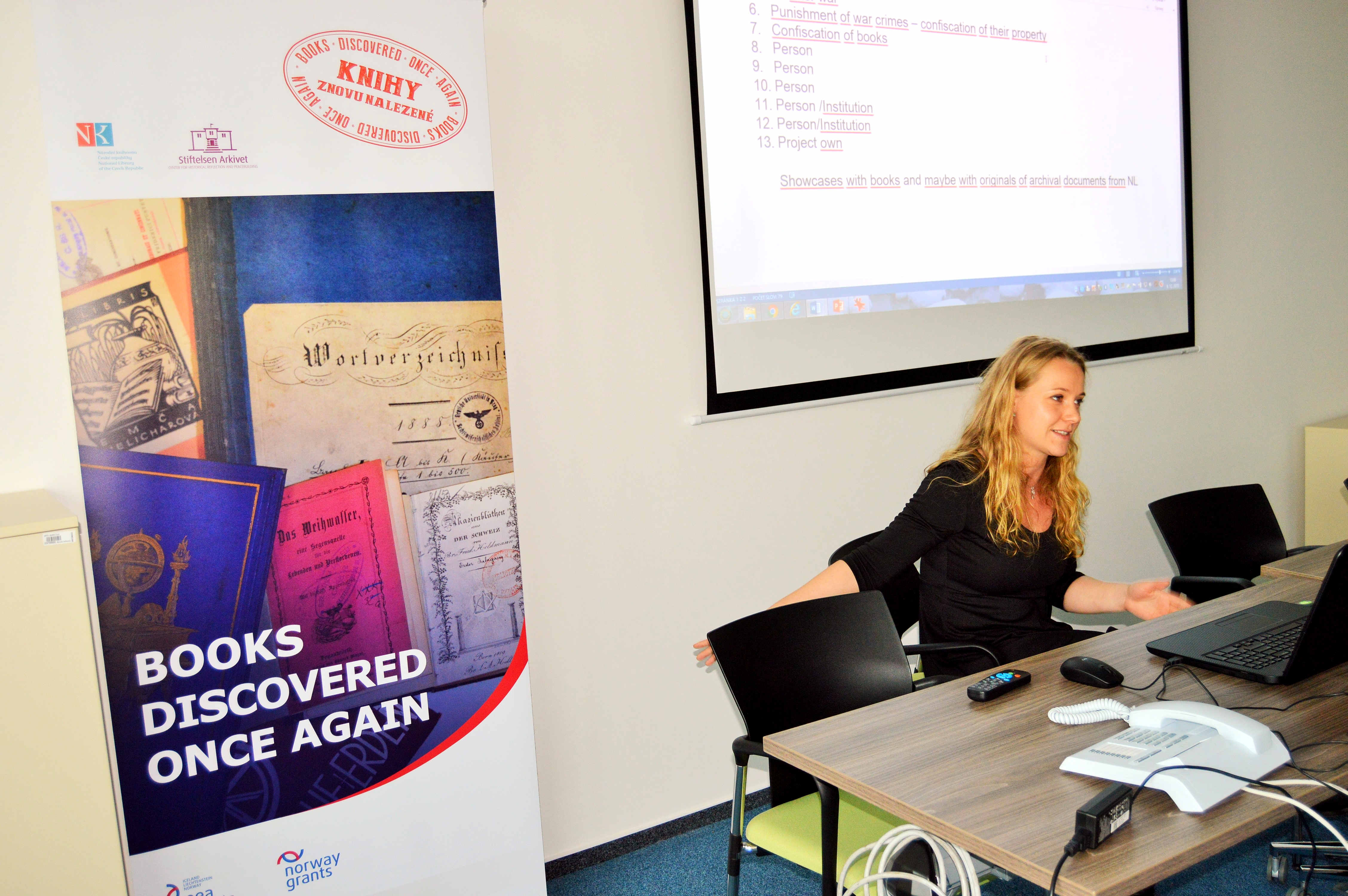
Presentation from the fourth workshop
Follow the cycle of a book in the project
The project could not be realized without the hard work of our librarians. The books are stored in the depository in Neratovice. It is impossible to tell in advance what we are going to find during our research, as so far librarians have not systematically categorized the non-Bohemical documents. These are mostly books from the first half of the 20th century. First, the books are dusted and cleaned – without cleaning, they would be impossible to work with.
Sorting books
It is necessary to determine whether a particular book falls under our project or not. A librarian must take each book, identify it and sort it. Of about 3,000 books that pass through their hands, one third falls under our project. Priority is given to books with stamps, as these allow the identification of the journey of these books through various institutions.
Processing of records
After that, cataloguing records are made in the ALEPH library system, containing, among other information, the physical description. Library units for internal records about the books are created. Due to the processing of books and other related activities this information will not be public and will be available only to National Library staff during the project’s implementation. For the general public, records will be created and issued after the end of the project.
The sorting and processing of records undergoes quality control by the National Library’s managers.

Among the results of the project will be an exhibition in Clementinum and a virtual exhibition
The project Books Discovered Once Again is funded by the Cultural Heritage and Contemporary Art programme. In our project, cultural heritage takes the form of books confiscated or brought to the country during World War II and immediately after. The information obtained about the books themselves, the institutions which they passed through, the people with whom they were associated, and their historical and political context, will be presented in two exhibition projects.
Exhibition
The National Library organizes various cultural events, including exhibitions. It has an exhibition department and several exhibition spaces of different sizes in the very heart of the National Library in Clementinum. The exhibition will put on display interesting books that we find during the project, accompanied by interesting facts about who they belonged to or how long and winding their path to the depository of the National Library in Neratovice was.
Virtual exhibition
The second exhibition will be a virtual one created in cooperation with our Norwegian partner, which has experience with similar projects. The virtual exhibition will only partially reflect the content of the conventional exhibition, as we would like to make the most of this way of presenting information, which is not frequent in the Czech Republic. We hope that the experience of visiting the virtual exhibition will be powerful and interesting, not only to the general public, but also to experts, to whom we will introduce this special tool for communicating the results of scientific research and scientific information.
Work on the virtual exhibition began during the second workshop
In the second workshop, held in mid-May 2015 in Kristiansand, we started a discussion about the exhibition and what it should be like. We hold the view that the first thing to be done is to define precisely what impression the exhibition should make on the user, what effect it should have, and what its purpose is.
We agreed that 70 % of the virtual exhibition should awaken visitor’s interest in the topic with its visual aspect and original, modern form. “Only” 30 % of the exhibition should convey practical information. Then we divided the content into three levels – the macro-, micro-, and meta-levels. Currently, we are selecting the content and particular stories for all three levels. Later, we will sort out what the exhibition will look like and how the webpage will be designed. We are planning to test the first version of the exhibition in autumn 2015.

Foto from exhibition Kodex Vyšehradský in Clementinum.
Research will be presented at professional seminars in Prague and Norway
Research and work in the library will be followed by activities presenting the acquired information on confiscated and imported books, their provenance and their historical and social importance. Among these activities will be the continuous publishing of findings here, on the project website. For the professional public, we intend to summarize the conclusions for publication in an academic journal. The exhibitions in Clementinum and the virtual exhibition will be directed particularly at the general public. The virtual exhibition will be launched during the second seminar in Norway. The grand opening of the exhibition in Clementinum is scheduled for the second expert seminar held in Prague.
Two expert seminars will be organized for the professional public – the first will take place in the Czech Republic, the second in Norway. It is not possible to say yet what exactly will be covered in these seminars, because everything depends on the research, which is unique in the Czech environment and libraries. Both domestic and foreign experts will be invited to these meetings.
Both expert seminars will be held at the end of the project, i.e. in March 2016. The purpose of the last workshop of our international team is to prepare conferences.
